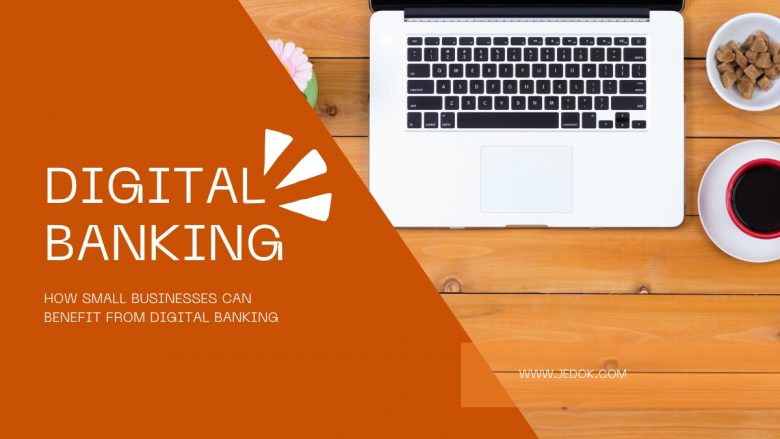
It is essential to have a consistent cash flow, secure payments, and reliable receipts while running a small business. Make sure your sensitive data is protected against assaults as well. Small business banking via the internet
Digital banking techniques advance in the tech world, becoming faster and safer than the majority of conventional exchange techniques between two parties. So, besides speed, what are the benefits of digital banking for small businesses?
Digital Banking Allows Small Businesses to Keep Track
Small businesses and start-up companies can benefit from digital banking because they can’t really afford to hire top-tier accountants or invest in a sophisticated accounting system to keep track of all of their business’s operations and money.
Smaller businesses can effectively manage their finances thanks to digital banking. It also keeps track of everything by producing reports on a weekly, monthly, or quarterly basis. The fact that these are simple to filter gives company decision-makers an advantage. You can always take a step back and look at who you’ve paid and when.
You may even be able to share your financial information with a third party, such as a financial analyst, using some new banking solutions for enterprises. Instead of hiring a full-time analytics team, a small business may do that once every quarter or every couple of quarters.
It’s Convenient
Digital banking is one of the most convenient ways to bank for small business owners. Small businesses can benefit from digital banking because it’s convenient. With digital banking, business owners can make deposits and transfers anytime, anywhere. They can also manage their finances and keep track of their spending with ease. In addition, digital banking is more secure than traditional banking methods and helps business owners save time and money.
Brick-and-Mortars Are More Expensive
Small businesses can benefit from digital banking because brick-and-mortar is more expensive. The average small business spends $2,500 a month on rent, while the average digital bank charges $25 a month.
In addition, brick-and-mortar banks typically charge higher fees for services such as wire transfers and check to process. For example, Bank of America charges $30 for outgoing domestic wire transfers, while Chase charges $35. Digital banks such as Azlo and Simple charge no fees for these services.
Finally, small businesses often have to pay monthly maintenance fees to their brick-and-mortar bank. These fees can range from $10 to $50 per month. Digital banks typically don’t charge monthly maintenance fees.
Overall, small businesses can save a significant amount of money by switching to a digital bank.
Better Digital Security
Small businesses are often the target of digital attacks because they usually have fewer resources to devote to security. However, there are many ways that small businesses can benefit from digital banking, including better digital security.
Digital banking can help small businesses by providing a more secure way to store and access financial information. Small businesses can also use digital banking to make payments and transfer funds more securely. Digital banking can also help small businesses keep track of their spending and income more easily.
Overall, better digital security is one of the biggest benefits that small businesses can gain from using digital banking. By using digital banking, small businesses can protect themselves from many common cyber threats.
A Smaller Environmental Footprint
Small businesses can benefit from digital banking because of a smaller environmental footprint. A study by the World Bank Group found that for every 100 paper bills that are replaced with digital payments, there is a net reduction of approximately 33 kilograms of carbon dioxide emissions.
This is good news for small businesses, who are often looking for ways to reduce their environmental impact. In addition to reducing emissions, digital banking can also help save on costs associated with paper and ink.
There are several other benefits that digital banking can provide to small businesses. For example, online banking can help businesses keep track of their finances and make it easier to send and receive payments. Overall, digital banking provides several advantages that can be helpful for small businesses.
Final Words
The benefits of using digital banking instead of traditional brick-and-mortar banks for small businesses continue to grow every year. You can save money with digital banks, which also offer superior security, ease of use, automatic payments, and financial tracking. The best part is that you can start and experiment with it without going to a bank. All in the convenience of your home.


